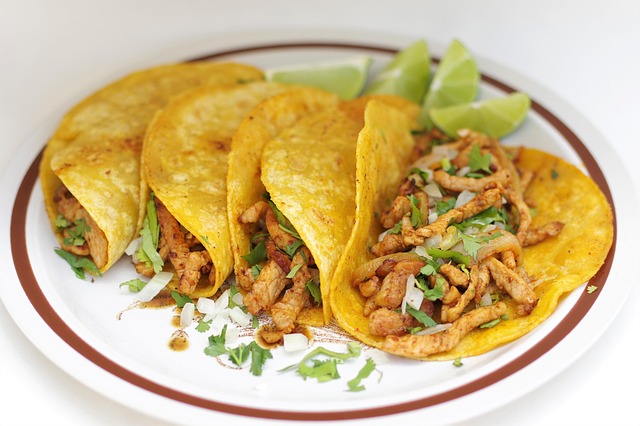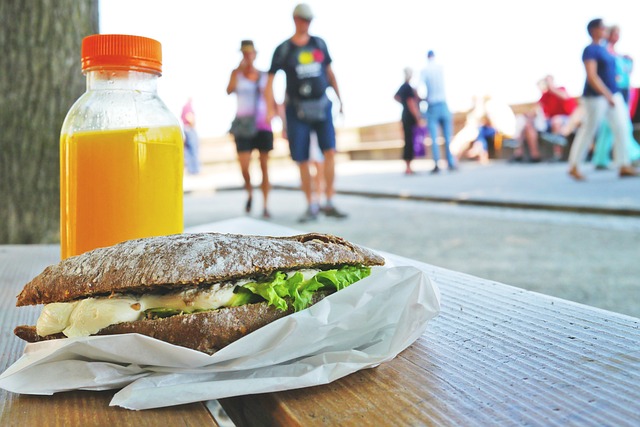Eugene, Oregon cafes lead in sustainable coffee practices by directly sourcing fair trade, organic beans from farmers and roasters committed to ethical standards. They bypass middlemen through direct trade relationships, offering higher prices and fostering long-term partnerships with suppliers. These establishments prioritize transparency, education, and community empowerment while promoting environmental sustainability and benefiting global farmers and communities through their ethical sourcing of sustainable coffee practices.
“In Eugene, Oregon, cafes aren’t just serving up a hot cup of coffee; they’re leading the charge for ethical and sustainable coffee sourcing. This vibrant city has emerged as a beacon for environmentally conscious consumers and fair trade advocates. By exploring Eugene’s commitment to sustainable coffee practices, we uncover how local cafes are driving positive change in Oregon. From ethical sourcing to transparent supply chains, these efforts ripple through local communities and the global environment, making every sip a statement.”
- Exploring Eugene's Commitment to Sustainable Coffee Practices
- Ethical Sourcing: How Cafes Lead the Charge in Oregon
- The Impact of Fair Trade on Local Communities and the Environment
- Behind the Scenes: Cafe Efforts to Promote Transparency in Coffee Chains
- Consumer Choices: Supporting Eugene Businesses with Ethical Coffee Sourcing
Exploring Eugene's Commitment to Sustainable Coffee Practices

Eugene, Oregon, has emerged as a beacon for ethical and sustainable coffee sourcing, with many local cafes actively supporting fair trade and eco-friendly farming practices. This commitment to sustainability extends beyond simply serving high-quality brews; it involves direct partnerships with farmers and roasters who prioritize organic cultivation methods, safe working conditions, and fair wages for workers. By exploring these ethical coffee practices, Eugene’s cafes contribute to a global movement that respects both the environment and the people behind every cup.
The city’s vibrant cafe culture isn’t just about enjoying a delicious cup of coffee; it’s also about fostering transparency and accountability in the supply chain. Many Eugene establishments proudly display certifications like Fair Trade, Organic, and Direct Trade on their menus, ensuring customers that their morning pick-me-ups are making a positive impact. This commitment to sustainable coffee practices not only benefits farmers and workers but also educates consumers about the social and environmental implications of their choices, creating a more conscious community.
Ethical Sourcing: How Cafes Lead the Charge in Oregon

Oregon’s cafes are not just about crafting perfect cups; they’re also at the forefront of promoting ethical coffee sourcing, a movement that prioritizes sustainability and fair treatment for farmers. Many local establishments in Eugene have embraced sustainable coffee practices, ensuring every sip contributes to a more equitable global coffee economy.
By direct trade relationships with suppliers, these cafes bypass middlemen, offering higher prices to farmers and fostering long-term partnerships. This approach encourages ethical labor practices and promotes environmentally responsible farming methods. The result is not just high-quality coffee but also a reduced environmental footprint, making Oregon’s cafe culture a model for sustainable coffee consumption worldwide.
The Impact of Fair Trade on Local Communities and the Environment

Fair Trade is transforming the way coffee is cultivated and consumed, with a profound impact on local communities and the environment. By adopting sustainable coffee practices, Fair Trade ensures that farmers receive fair wages and safe working conditions, fostering economic growth within their communities. This empowerment allows for improved access to education, healthcare, and infrastructure development, creating a ripple effect of positive change.
Furthermore, ethical sourcing promotes environmental stewardship. Many Fair Trade coffee farms implement eco-friendly methods, such as preserving biodiversity, reducing chemical usage, and minimizing water pollution. These practices contribute to the overall health of ecosystems, ensuring that future generations can also benefit from sustainable coffee cultivation.
Behind the Scenes: Cafe Efforts to Promote Transparency in Coffee Chains

Many cafes in Eugene, Oregon, are not just about serving a cup of coffee; they’re advocates for ethical and sustainable coffee practices. Behind the scenes, these establishments are actively promoting transparency throughout the coffee supply chain. This commitment often involves direct relationships with farmers, ensuring fair trade practices and high-quality beans sourced responsibly from regions free from harmful pesticides or unethical labor.
By prioritizing sustainability, Eugene’s cafes contribute to a more equitable global coffee industry. They offer customers insights into the origin of their coffee, allowing them to make informed choices that support farmers and communities worldwide. This dedication to transparency creates a ripple effect, encouraging consumers to appreciate the story behind every sip and fostering a culture where ethical sourcing is the norm.
Consumer Choices: Supporting Eugene Businesses with Ethical Coffee Sourcing

In today’s conscious consumer landscape, choosing where to spend your money has never been more impactful. When it comes to coffee, Eugene Oregon cafes that prioritize ethical coffee sourcing are leading the way in sustainable coffee practices. By supporting local businesses committed to fair trade and direct-trade beans, consumers directly contribute to the well-being of farmers and communities around the globe.
This commitment extends beyond ensuring a quality cup of coffee; it’s about making conscious choices that align with our values. When you patronize Eugene cafes dedicated to ethical sourcing, you’re not just fueling your habit—you’re fueling positive change. From transparent supply chains to direct partnerships with growers, these businesses demonstrate that delicious coffee and sustainable practices can go hand in hand.






